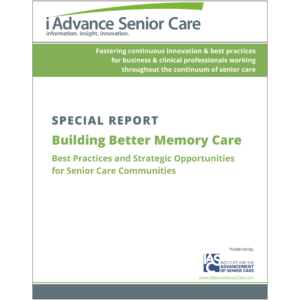Meditation, yoga may slow dementia progression
New research may have you considering adding meditation and yoga to your activities schedule. Seniors who undertake those strategies to reduce stress may stave off Alzheimer’s disease and other dementias in the process, according to results of a new pilot study led by researchers at Beth Israel Deaconess Medical Center (BIDMC).
Previous research has shown that those in whom mild cognitive impairment has been diagnosed may develop dementia within five years, says the study’s first author, Rebecca Erwin Wells, MD, MPH. The neurologist at Wake Forest Baptist Medical Center in Winston‒Salem, NC, conducted her research while she was a fellow in integrative medicine at BIDMC and Harvard Medical School. "We also know that as people age, there's a high correlation between perceived stress and Alzheimer's disease, so we wanted to know if stress reduction through meditation might improve cognitive reserve," she adds.
Wells evaluated adults aged 55 to 90 years in BIDMC's Cognitive Neurology Unit. Fourteen adults in whom mild cognitive impairment had been diagnosed were included in the study.
Participants were randomly assigned either to a group whose members participated in meditation and yoga or to a control group whose members received normal care. The study group met for two hours each week for eight weeks. They also participated in a day-long mindfulness retreat and were encouraged to continue their practice for 15 to 30 minutes per day.
All participants underwent functional magnetic resonance imaging at baseline and then again after eight weeks to determine whether any changes in the structures of the brain or in brain activity had occurred. Results showed that the group engaged in meditation and yoga had significantly improved functional connectivity in the areas of brain engaged when people remember past events or envision the future (the default mode network). Additionally, as expected, the part of the brain responsible for emotions, learning and memory (the hippocampus), which is known to atrophy as people progress toward mild cognitive impartment and Alzheimer’s disease, atrophied in both groups, but it atrophied less in those who practiced meditation and yoga.
Practicing meditation and yoga “is a relatively simple intervention, with very little downside, that may provide real promise for these individuals who have very few treatment options,” Wells says, adding that additional research is needed to explore the results.
The results of the study appear in the Nov. 27 issue of Neuroscience Letters.
See other content by this author here.

Lois A. Bowers was senior editor of I Advance Senior Care / Long-Term Living from 2013-2015.
Related Articles
Topics: Activities , Alzheimer's/Dementia , Executive Leadership











